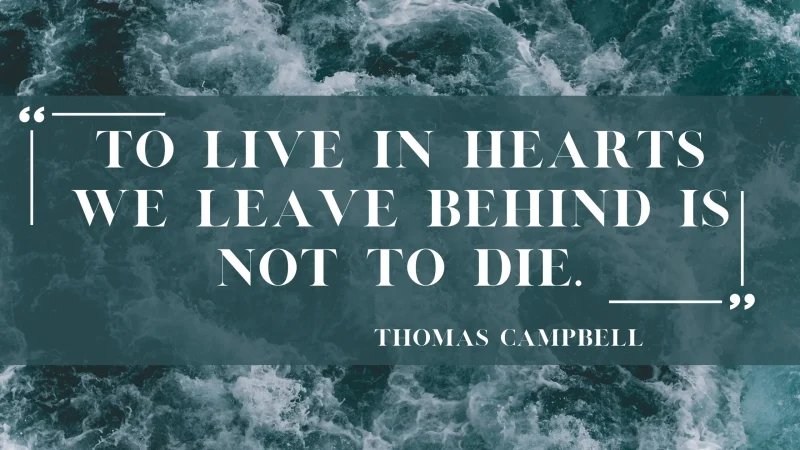Coping with Grief:
Why You Should Seek Support
With the death of a loved one comes a whole host of burdens and losses, from the need to make funeral plans to the loss of companionship, intimacy and shared activities. Grief counseling helps individuals, families and couples who are coping with grief by helping to understand, express and heal. Mourning, bereavement, anticipatory grief, and standard or common grief are different grief experiences. Therefore, the experience of loss and grief may appear or feel differently when expressed. As a result, personal beliefs, cultural backgrounds, situational loss, and religious practices influence individual grief experiences. Therapy has no one-size-fits-all plan because everyone owns their journey. We’ve put together a list of counseling techniques and approaches used in counseling.

How Therapy Helps Individuals
Coping With Grief
Narrative Therapy as a Support in Grief Counseling
- After a loss, we may find ourselves mentally & emotionally consumed by thoughts and feelings surrounding our loss. When provided a safe and nurturing environment, we can share our story of loss, allowing for us to become more familiar with this strange and apparent emotion. Telling a story, sharing a memory, or speaking about our losses helps us understand our perceptions, feelings and beliefs. Telling our story reflects our values and allows us to face the grief instead of avoid it. These are important components for individuals coping with grief.

Grief Counseling: Art Therapy
- Art therapy allows for creativity and flexibility in the therapy room. Though it may seem less structured, Art Therapy approaches set clear intention for expression, communication and processing. Just as Narrative Therapy encourages verbal processing, art therapy encourages non-verbal processing through traditional art such as painting and drawing, along with other forms of creative expression such as dancing, singing, role playing and poetry writing. Many people seek out Art Therapy to help with healing from loss and grief because it allows for a variety of interventions that can be tailored to individual needs
Cognitive Behavioral Therapy (CBT)
- This well-known therapy approach is focused on learning to recognize and restructure thinking patterns that are limiting your growth. CBT is more “action oriented” and allows for clients and therapists to measure progress easier than with other approaches. Another benefit of CBT is the emphasis on learning new skills, called coping skills, to manage difficult emotions that may arise in individuals coping with grief
Coping with Grief Through Group Support
- Group Therapy is a great support for those experiencing loss, whether that loss be recent or not. The groups are made up of individuals who share similar experiences and can safely connect with others in a nurturing and accepting environment. The main reason that Group Therapy has been so successful as a treatment for grief is because it normalizes the experience of grief that can often feel confusing and strange.
Acceptance & Commitment Therapy (ACT)
- This emerging technique emphasizes the importance of accepting all emotions, thoughts and feelings just as they are, absent from avoidance, over-thinking, or feeding into thought-patterns that slow the healing process. ACT can also be helpful for clients who are not just coping with grief, but may be experiencing “chronic grief” or “complicated grief”, this is, grief that lasts for more than a year after the loss. The reason ACT can be helpful for complicated grief is because complicated grief tends to be rooted in unprocessed emotions and rigid, self-damaging beliefs surrounding the loss. ACT can help break these thinking patterns and introduces a mindful approach to experiencing and processing emotions.
Leave Your Info
Meet Our Grief Counselor
Kristin Justice, LAC, specializes in grief, loss & healing. Click here to learn about our grief counseling services or to work with our grief specialist, Kristin Justice, LAC.
Coping with grief doesn’t have to be done alone. Reach out today.

“Grief is the last act of love we can give to those we loved. Where there is deep grief, there was great love.“
Cathy Rentzenbrink, Author of The Last Act Of Love and A Manual For Heartache
Reach out to Us
Meet the Team
FAQ about Online therapy at MBD
How do I get started as a new client?
New Clients can reach out to us directly via call, text or email here:
What is your cancellation policy?
We ask that clients provide at least 24 hours notice in the event that they need to cancel to avoid the 50% cancellation fee. we understand that life happens and do our best to be flexible & reschedule.
Does my insurance cover my visits?
We provide”Courtesy Billing” for clients who are using the Out-of-network insurance benefits.
Our Insurance Page shares a small blurb about Why We Left Insurance Panels
Do you offer traditional talk therapy?
of course! though we have some unconventional therapy approaches, we are rooted in evidenced based practices. Talk therapy is a major player in the therapy room! See What we Treat and Integrative Services for more information
Is Online Therapy As Effective As In-Person Therapy?
Online therapy is essentially face-to-face counseling, just conducted remotely. Studies show that teletherapy is as effective as traditional counseling. Professional organizations and state governments recognize its benefits and have set regulations for it. However, like any therapy, its success in achieving your goals isn’t guaranteed. It’s important to discuss with your therapist whether teletherapy is working for you.
Can I Change Therapists If I'm Not Happy?
Yes, you can switch therapists to another provider within the practice, or we can provide you a referral if preferred. We want to ensure that your time and effort are well spent, and that you are getting the relief you need, that’s why we work collaboratively with each other in the practice, as well as outside therapists who we know and trust.
How Do I Know If Therapy Is Helping?
You should feel like you’re making progress. Signs it’s working include:
Feeling comfortable talking to your therapist
Your therapist respects boundaries
You’re moving towards your goals
You feel listened to
You’re doing better in life
Your self-esteem is getting better
Is Online Therapy Easy to Use for Non-Tech-Savvy People?
Yes, it’s pretty simple to access sessions. You’ll need basic internet skills, such as opening and visiting the patient link sent to you via email. It’s similar to video chatting like Facetime or Zoom. We can also walk you through it on the phone the first time to ensure a strong connection
What Questions Should I Ask My New Therapist?
Feel free to ask anything. Some good questions are:
- How often will we meet?
- What do you specialize in?
- What experience do you have with my issue?
- What outcomes can I expect?
- How will I know I’m progressing?
- How long do you usually work with clients?
- How will we set my treatment goals?
How Should I Prepare for My First Session?
Showing up is all that you need to do! But if you really want to get the most out of session, it could help to take some time to think about what you want from therapy. It helps to write down your goals, questions you have or things that you feel are important to share.
What is the difference between associate therapists & fully licensed therapists?
Our Qualifications:
Our founder, Rebecca Sidoti, is a highly qualified, state-licensed therapist and supervisor with extensive training in anxiety related disorders and innovative treatment such as Ketamine Therapy. Mind by Design Counseling adheres to standards set by the our governing counseling boards.
To see each providers credentials, training and licenses, visit our “Meet the Therapists” Page to learn more.
- LAC/LSW are therapists who may practice clinical work under the supervision of a fully licensed therapist.
- LPC/LCSW are therapists who have completed the necessary clinical hours post-graduation under supervision and can practice clinical work independently.
What Geographic Areas Are Served?
Currently, we serve clients in New Jersey and are expanding to other states as telehealth laws evolve. While telehealth offers the convenience of attending sessions from anywhere, state laws require clients to be in-state during their session.
Is Virtual Counseling Suitable for Everyone?
Online therapy might not be as effective for individuals with chronic suicidal thoughts, severe trauma, significant mental health history, or those recently in intensive care. Such cases often benefit more from traditional, in-person counseling. We’ll help you decide if our online services are right for you during your intake and evaluation.
What Equipment is Needed for Online Therapy?
To join a session, log in using the credentials we provide. No downloads are needed. Our platform, compatible with both individual and group sessions, requires:
A computer or mobile device with a webcam and internet access.
We’ll help you test your setup before your first appointment to ensure a reliable connection. iOS users should use the Safari browser for mobile and tablet sessions.
What Questions Will Therapists Ask Me?
It depends on your goals. Expect questions about your thoughts, feelings, relationships, work, school, and health. They’ll ask to understand your therapy goals.
How Do You Keep Client Information Secure?
Security and Confidentiality of Sessions:
Your privacy is crucial to us. We use TherapyNotes, a HIPAA-compliant platform, ensuring secure and confidential teletherapy sessions. This platform’s security features include encrypted video connections, secure data transfers, and encrypted databases, ensuring your information is safe at all times.
What is VRT used for?
we use VRT to support Exposure Therapy, a long standing traditional therapy modality to treat phobias, anxiety and stress. we send a headset directly to your home so you can access VRT from anywhere.
VRT not only helps with exposure therapy for phobias, but is great for ADHD, mindfulness, PTSD and social anxiety.



